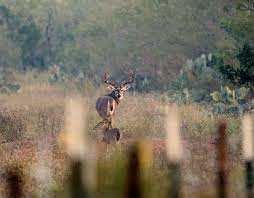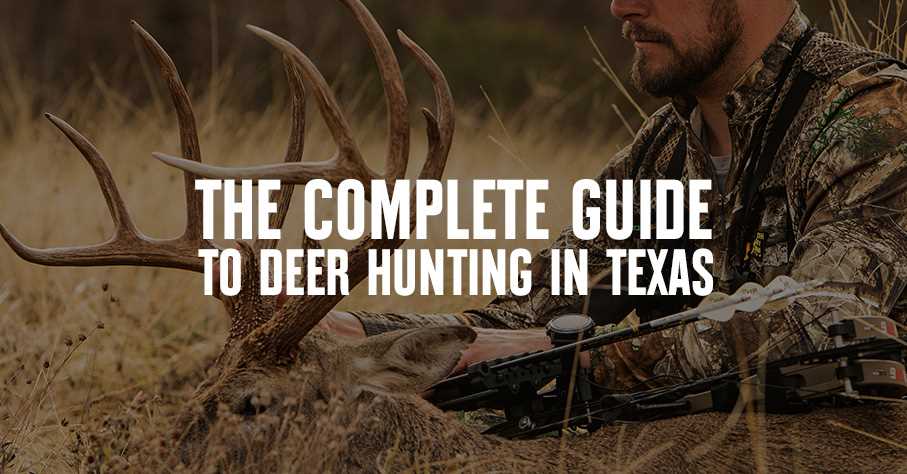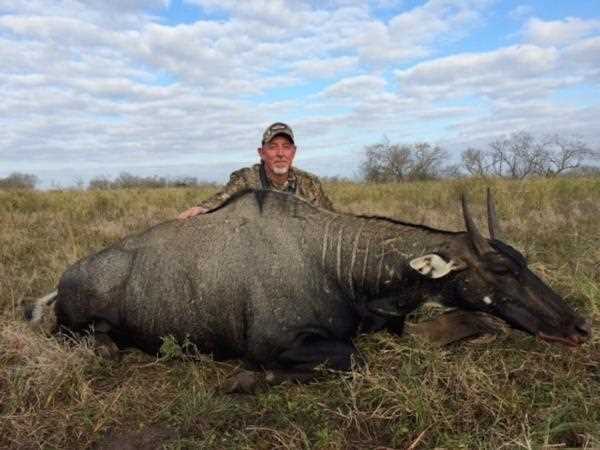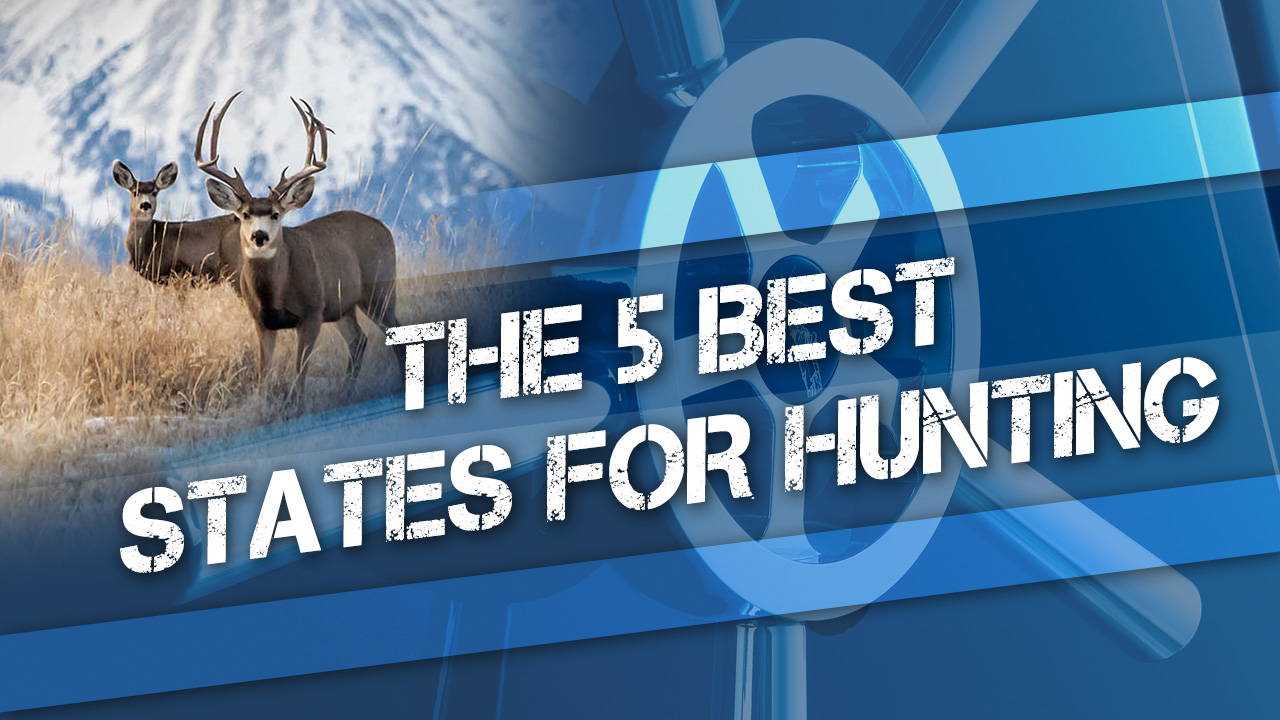Contents
Comprehensive Guide to Small Game Hunting in Texas: Everything You Need to Know

Welcome to Texas, the land of opportunity for game hunters. With its diverse landscapes and abundant wildlife, Texas offers hunters a unique experience in pursuing small game. Whether you’re a seasoned hunter or just starting out, this comprehensive guide will provide you with all the information you need to have a successful hunting trip in the Lone Star State.
Small game hunting in Texas is a thrilling adventure that allows hunters to explore the natural beauty of the state while honing their hunting skills. From rabbits and squirrels to quail and doves, there is no shortage of game to pursue. The vast expanse of Texas provides ample opportunities for hunters to immerse themselves in the wilderness and experience the thrill of the hunt.
One of the standout features of small game hunting in Texas is the variety of landscapes you can explore. From the rolling hills in the Hill Country to the dense forests in East Texas, each region offers a unique hunting experience. Whether you prefer stalking game through dense brush or hunting from a blind in an open field, Texas has it all. With such diverse landscapes, hunters can tailor their hunting techniques to suit their preferences.
When planning your small game hunting trip in Texas, it’s important to familiarize yourself with the hunting regulations and seasons. The Texas Parks and Wildlife Department provides detailed information on hunting licenses, bag limits, and hunting seasons. It’s essential to abide by these regulations to ensure the sustainability of the game populations and the conservation of natural resources. So gear up, grab your hunting license, and get ready for an unforgettable small game hunting experience in the great state of Texas!
Section 1: Planning your Small Game Hunting Trip

Planning a small game hunting trip in Texas requires careful consideration and preparation. With its vast landscapes and diverse wildlife, Texas offers numerous opportunities for game hunters to explore and enjoy their sport.
The first step in planning your trip is to research the specific hunting regulations and seasons in Texas. Each game species has its own set of rules and bag limits, so it is important to familiarize yourself with the regulations governing the type of game you wish to hunt. This information can usually be found on the website of the Texas Parks and Wildlife Department.
Once you have determined the hunting regulations, you can begin scouting potential hunting locations. Texas is known for its abundance of public hunting lands, including state parks, wildlife management areas, and national forests. These areas provide ample opportunities for small game hunting and often have designated hunting zones or specific hunting seasons.
It is also worth considering hiring a professional hunting guide or outfitter. They have extensive knowledge of the local game populations and can provide valuable assistance in locating and tracking small game. Additionally, they can offer advice on hunting techniques and safety, ensuring a successful and enjoyable trip.
When planning your hunt, it is important to consider the equipment and gear you will need. This includes a reliable firearm or bow, appropriate ammunition or arrows, camouflage clothing, hunting boots, a hunting knife, and necessary licenses and permits. It is also recommended to bring a map, compass or GPS device, and plenty of water and food for the duration of your trip.
Finally, be sure to familiarize yourself with basic safety guidelines and ethical hunting practices. Always prioritize safety by following proper firearm handling and hunting protocols. Respect the environment and other hunters by practicing ethical hunting, such as only shooting within your capabilities and retrieving all harvested game.
In conclusion, planning a small game hunting trip in Texas involves researching hunting regulations, scouting potential locations, considering professional assistance if desired, gathering necessary equipment, and understanding safety and ethical hunting practices. By taking these steps, you can ensure a successful and enjoyable hunting experience in the Lone Star State.
Choosing the Right Location

When it comes to small game hunting in Texas, location is everything. Picking the right spot can make or break your hunting trip. There are a few key factors to consider when choosing a location.
1. Habitat: Small game species like rabbits, squirrels, and quails have specific habitat requirements. Look for areas with dense vegetation, such as woodlands, brushy areas, and river bottoms. These habitats offer cover and food sources for small game animals.
2. Accessibility: Ensure that the location you choose is easily accessible. Check for nearby roads and parking areas. You don’t want to spend hours hiking through rugged terrain just to get to your hunting spot.
3. Public or Private Land: Decide whether you want to hunt on public or private land. Public hunting areas offer a variety of opportunities but may be more crowded. Private land hunting can provide more exclusive access, but you’ll need to obtain permission from the landowner.
4. Local Regulations: Familiarize yourself with the local hunting regulations and restrictions. Each county may have different rules regarding hunting seasons, bag limits, and specific hunting methods. Make sure you are in compliance with all regulations before heading out.
5. Safety: Safety should always be a top priority. Choose a location that is safe for hunting, away from populated areas, and with good visibility. It’s essential to know your surroundings and be aware of other hunters in the area.
By considering these factors, you can choose the right location for your small game hunting adventure in Texas. Remember to do your research, plan ahead, and always prioritize safety.
Obtaining the Necessary Permits and Licenses

If you plan on small game hunting in Texas, it is important to ensure that you have all the necessary permits and licenses. These documents not only make your hunting experience legal, but they also help in the conservation and management of the state’s wildlife.
Texas Hunting License: Before you embark on any hunting expedition in Texas, you must obtain a valid hunting license. The Texas Parks and Wildlife Department (TPWD) offers various types of licenses, including resident and non-resident options. Make sure to purchase the appropriate license based on your residency status.
Endorsement and Stamp: In addition to the hunting license, you may need certain endorsements and stamps to legally hunt small game in Texas. For example, if you plan on hunting migratory game birds, you will need the Federal Migratory Bird Hunting and Conservation Stamp (Duck Stamp) along with your license. The Stamp funds conservation efforts and protects waterfowl habitats.
Special Permits and Tags: Depending on the specific small game you are hunting, you may need additional permits and tags. For instance, if you plan on hunting furbearers like coyotes, bobcats, or foxes, you will require a Fur-bearing Animal Permit. This permit helps regulate the harvest and management of fur-bearing animals.
Hunter Education Certification: If you were born after September 1, 1971, you will need to provide proof of completing a certified Hunter Education course to obtain a hunting license in Texas. This course ensures that hunters have a good understanding of safety, ethics, and conservation practices.
Check the Regulations: It is crucial to review and comply with the hunting regulations set by the TPWD. These regulations outline bag limits, hunting seasons, and specific rules for different types of small game. Ensure that you are aware of any additional restrictions or requirements for the area you plan on hunting in.
Renewal and Reporting: Remember that hunting licenses and permits are generally valid for a specific time period. Make sure to renew them before they expire to avoid any legal issues. Additionally, some licenses may require you to report your hunting activity, such as the number of animals harvested. Be sure to fulfill any reporting requirements to stay compliant.
By obtaining the necessary permits and licenses, you can enjoy small game hunting in Texas while contributing to the conservation and management of the state’s wildlife. Make sure to stay updated with any changes in the regulations and always practice safe and ethical hunting.
Researching Hunting Seasons and Regulations

Before you head out on your hunting adventure in Texas, it is important to thoroughly research the hunting seasons and regulations that apply to the small game you are targeting. Texas is home to a wide variety of game that can be hunted, including deer, turkey, quail, dove, and rabbit.
Each type of game has its own designated hunting season, which typically varies based on factors such as population control and breeding cycles. It is crucial to know the specific dates for each hunting season to ensure that you are hunting legally and within the specified time frame. Violating hunting season regulations can result in hefty fines and possible loss of hunting privileges.
In addition to hunting seasons, there are various regulations that hunters must abide by to ensure the sustainability and conservation of game populations. These regulations may include bag limits, which dictate the maximum number of game animals that can be harvested per day or per season, as well as specific hunting methods and equipment restrictions.
To research hunting seasons and regulations in Texas, you can visit the official website of the Texas Parks and Wildlife Department. They provide comprehensive information on hunting regulations, including specific dates for each hunting season, bag limits, and other important guidelines. You can also find information on any special permits or licenses that may be required for hunting certain types of game.
| Type of Game | Hunting Season | Bag Limit |
|---|---|---|
| Deer | Varies depending on county | Varies depending on county |
| Turkey | Spring: March-April Fall: November-December |
Varies depending on county |
| Quail | October 31 – February 28 | 15 per day |
| Dove | September 1 – October 31 December 18 – January 14 |
15 per day |
| Rabbit | Year-round | Unlimited |
Make sure to familiarize yourself with the specific regulations for each type of game you plan to hunt. This will help ensure a successful and legal hunting experience in Texas.
Section 2: Essential Gear and Equipment
When it comes to small game hunting in Texas, having the right gear and equipment can make all the difference. Here are some essential items that every hunter should consider bringing:
- A reliable and accurate firearm or bow
- Ammunition or arrows suitable for small game hunting
- Binoculars for spotting game from a distance
- A hunting knife for field dressing and processing game
- A durable and comfortable backpack for carrying gear
- Game calls to attract small game
- Camouflage clothing to blend in with the environment
- Good quality hunting boots for traversing different terrains
- A first aid kit for any minor injuries
- Extra food and water for extended hunting trips
- A compass or GPS device for navigation in unfamiliar areas
- A headlamp or flashlight for hunting in low-light conditions
It’s important to note that hunting regulations and requirements may vary in different parts of Texas, so be sure to check with the Texas Parks and Wildlife Department for any additional gear or equipment that may be required. With the right gear and equipment, your small game hunting adventures in Texas are sure to be successful and enjoyable.
The Right Firearm for Small Game Hunting

When it comes to small game hunting, choosing the right firearm is essential. You want a weapon that is lightweight, accurate, and versatile enough to handle various types of game.
Rifles: For small game hunting, rifles chambered in .22 caliber are a popular choice. They offer excellent accuracy and have a minimal recoil, making them perfect for precise shots. Additionally, rifles with a bolt-action mechanism are recommended for their reliability and ease of use.
Shotguns: Shotguns are another popular option for small game hunting. A 20-gauge or 12-gauge shotgun with a modified choke is ideal. They provide a wider shot pattern, making it easier to hit fast-moving targets like birds or rabbits. Shotguns also offer versatility, as they can be used for both upland game and waterfowl hunting.
Handguns: While not as commonly used as rifles or shotguns, handguns can be effective for small game hunting. Compact and easy to carry, a .22 caliber handgun is a good choice for small game hunting. It offers accuracy at close ranges and can be a useful backup weapon.
Before choosing your firearm, consider the type of small game you’ll be hunting and the environment you’ll be hunting in. It’s important to follow all local laws and regulations regarding firearm use and ensure you have the appropriate licenses and permits. Safety should always be your top priority when hunting. Happy hunting!
Optics and Accessories for Improved Accuracy

When it comes to small game hunting in Texas, having the right optics and accessories can greatly enhance your accuracy and overall hunting experience. Whether you are tracking squirrels, rabbits, or other small game, having the right tools can make all the difference.
One essential accessory for improved accuracy is a high-quality scope. A good scope can help you see your target more clearly, even at long distances. Look for a scope with a high magnification power and a wide field of view to give you the best chance of spotting game in the Texas wilderness.
In addition to a scope, consider investing in a laser rangefinder. This device can help you accurately measure the distance between you and your target, allowing you to make more precise shots. Knowing the distance to your target is crucial in small game hunting, as it can affect your aim and bullet trajectory.
Another important accessory for improved accuracy is a bipod or shooting stick. These accessories provide stability and support when taking aim, making it easier to steady your shot. Look for a lightweight and adjustable bipod or shooting stick to ensure maximum comfort during your hunting trips.
Finally, don’t forget about the importance of proper ammunition. Choosing the right bullets for small game hunting in Texas can greatly impact your accuracy. Opt for lightweight and fast bullets that are designed specifically for small game. These bullets are more likely to deliver a clean and ethical kill, while also minimizing the risk of over-penetration.
By investing in quality optics and accessories, you can greatly improve your accuracy and increase your chances of success in small game hunting. Remember to always practice proper gun safety and follow local hunting regulations for a responsible and enjoyable hunting experience in Texas.

A skilled hunter, dedicated conservationist, and advocate for ethical practices. Respected in the hunting community, he balances human activity with environmental preservation.
